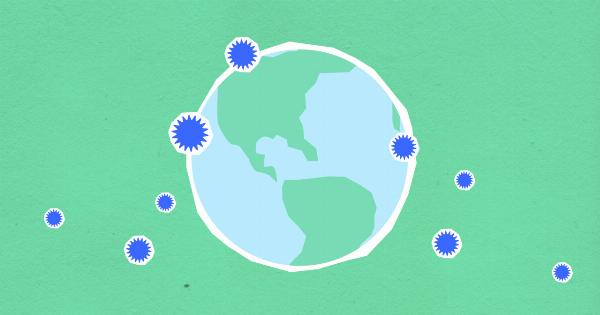Cancer is a complex disease that affects millions of people worldwide. According to the World Health Organization (WHO), cancer is the second leading cause of death globally, accounting for an estimated 9.6 million deaths in 2018.
With such alarming statistics, it’s no wonder that there is so much misinformation and misunderstanding surrounding cancer. Here, we’ll debunk some of the most popular cancer myths and reveal what’s real and what’s not.
Myth 1: Cancer is solely caused by genetics
While genetics can play a role in some types of cancer, in most cases, it is not the main cause.
Environmental and lifestyle factors such as smoking, poor diet, lack of exercise, and exposure to toxic substances are major contributors to cancer development. According to the American Cancer Society, up to 90% of all cancers are caused by these factors.
Myth 2: Cancer is contagious
Cancer is not contagious, and you cannot catch it from someone who has it. Cancer is caused by changes in the DNA of cells in your body and cannot be transmitted from one person to another.
Myth 3: Cancer treatment always causes hair loss
While some cancer treatments such as chemotherapy and radiation therapy can cause hair loss, not all cancer treatments result in hair loss. It depends on the type of cancer you have and the treatment plan recommended by your doctor.
Myth 4: Alternative therapies can cure cancer
There is no scientific evidence to support the claim that alternative therapies such as herbs, supplements, or special diets can cure cancer.
While some of these therapies may improve quality of life or reduce side effects associated with treatment, they should not be used as a substitute for conventional cancer treatment.
Myth 5: Cancer only affects older people
While cancer is more common in older people, it can affect anyone at any age. In fact, some types of cancer are more common in younger populations, such as leukemia, testicular cancer, and lymphoma.
Myth 6: Cancer always causes pain
Cancer does not always cause pain, especially in its early stages. Pain is more commonly associated with advanced cancer or cancer that has spread to other parts of the body.
Myth 7: A biopsy can cause cancer to spread
A biopsy is a procedure that involves removing a tissue sample from the body for examination. While it is possible for cancer cells to spread during a biopsy, it is a rare occurrence.
The benefits of a biopsy in accurately diagnosing and treating cancer far outweigh any potential risks.
Myth 8: Cancer is always a death sentence
While cancer can be a serious and life-threatening disease, it is not always a death sentence. With early detection and proper treatment, many types of cancer can be effectively treated and even cured.
Cancer survivors are living proof that cancer does not have to be a death sentence.
Myth 9: Sugar feeds cancer
While cancer cells do feed on glucose, the sugar found in foods does not directly cause cancer to grow. Eating a balanced and healthy diet that includes sugar in moderation is safe and does not increase the risk of cancer.
Myth 10: Everyone with cancer experiences the same symptoms
Each type of cancer and each person’s experience with cancer is unique. While there are some common symptoms associated with cancer such as fatigue, weight loss, and pain, not everyone with cancer will experience these symptoms.
Conclusion
It’s important to understand the facts about cancer and to separate fact from fiction. By debunking these common cancer myths, we can better understand the disease and work to prevent it.
Remember to always consult your doctor or healthcare provider if you have concerns or questions about cancer or cancer treatment.






























